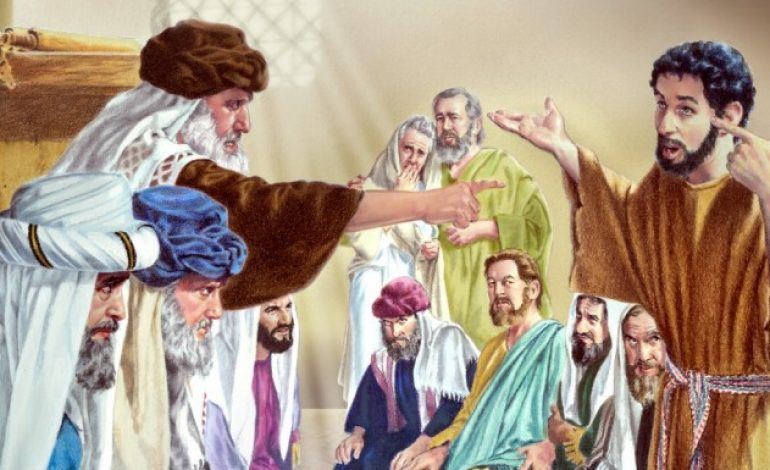Jijo Kandamkulathy, CMF
Claretian Publications, Macau
24TH SUNDAY – C
Lk 15:1-32
Jesus discusses three parables: 1) the parable of the lost coin, 2) the lost sheep, and 3) the lost son to establish the compassionate heart of God. The use of these parables was meant to counter the derisive attitude of the Pharisees and Sadducees toward the sinners and tax collectors, and their disapproval of a teacher eating with them. They had judged the sinners and tax collectors as unworthy of God. The three parables that Jesus discusses come in varying degrees of relational significance. A coin is inanimate, a sheep, living; and the son is closer to the father than a coin to the woman, or the sheep to the shepherd. If the progression is understood, we can better delve into the deeper import of the three parables put together.
A hard-earned coin has more value than what it can buy. Ten dollars earned as interest is of less worth than a ten-dollar bill earned by physical labor. Often the value of the money is not calculated by what it can buy but by how much is left in savings after your expenditure. Here, it is a woman who is in search of the coin because she earns her money with much more difficulty than a man. She has a stronger emotional bond to what she earns than a man.
In the second instance, a shepherd who has an emotional connection with his sheep is in search of the one that is lost. His reason is suspended, and he risks the loss of the other ninety-nine because of the emotional connection to what is lost. The numbers do not count here at all. The statistics officer who records the number of annual deaths will never feel the pain of the families who lost one of their loved ones. There are intangibles that cannot be judged based on financial or numerical valuation.
The third parable, which is about the prodigal son, shows the progressing intensity of the loss and the joy in regaining what was lost. What match is a shepherd who lost one sheep from a hundred to a father who lost one out of two sons! The intensity is multifold. Jesus explains how God is emotionally connected to his children, saint or sinner.
It is a Pharisaic mind that looks at the relationship between the father and his children with detached emotions, as a matter of numbers. Only a schizoid detachment can separate the children as good or bad, and abandon the bad ones. It is, of course, easy to judge the children of others, but when it comes to one’s own children, objectivity is obscured. The Pharisaic mind imagines that only the righteous belong to God and the sinful do not. When God is pictured as father, it undermines the strength of that basic premise of the Pharisaic religion.
People often judge one another based on one’s own preoccupations. The most recent example of this is from a film, the title of which I have forgotten. A husband whose wife had just chosen to divorce him, accused her of a relationship with another man. The woman had been suffering because of her paranoid husband for a long time. Someone then confronts the husband, “You are worried about her fidelity because you have not been faithful.” This was the truth. This man was not good at being faithful, but he was preoccupied with her fidelity.
The Pharisees and Sadducees had “unfriended” the tax collectors as bad people and unworthy of their respect. What was their preoccupation? They were worried about two things: popularity and sinfulness. They were worried about the number of followers that Jesus was gathering, and they tried to judge Jesus because he was gathering cheap popularity from sinners and traitors. Jesus labels the judgment of the Pharisees and the Sadducees as hypocritical. The Pharisees were not caught in their sinfulness, not because they were holy, but because they were shrewd enough to make mistakes that will not be discovered.
What should be our parameters in judging another person? First of all, we should not judge at all. What we can develop is a divine perspective toward the people around us. God judges based on the law of love, for God is love. Accordingly, the sinners and mistaken ones need more attention and care than the righteous ones. Jesus finds sinfulness not as a disqualification to establish a relationship with sinners. He knows that his Father considers saints and sinners alike as his children.
We keep judging others. The metric of our judgment is our own value system, which varies from person to person. A person who has suffered poverty might develop the tendency to evaluate everything and everyone around him/her based on how affordable something is. A priest might keep judging his community based on church attendance, so those who do not go to church may be judged as bad people. Someone who has a preoccupation with cleanliness makes friends only with hygiene freaks, and the rest become bad people!
I am reminded of the visit of Pope Francis to a prison in Italy. Talking to a prisoner, he was heard saying that he did not know why he was the Pope and not in the prison. We really do not have any merit of our own for where we are in life. We are where we are because God has designed it so. We can only be thankful for what we are, and not pass judgement over the plight of others.


 Follow
Follow


